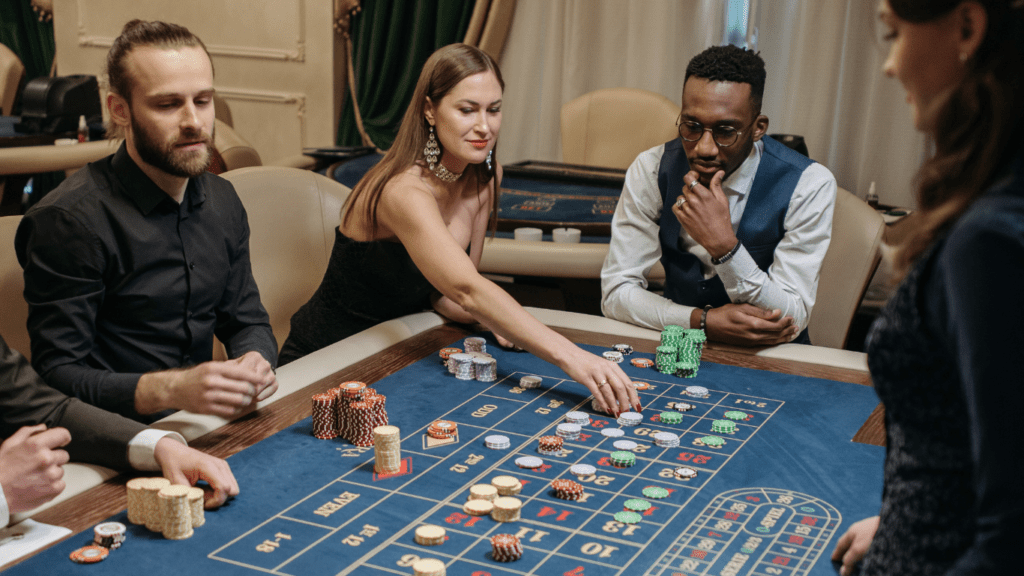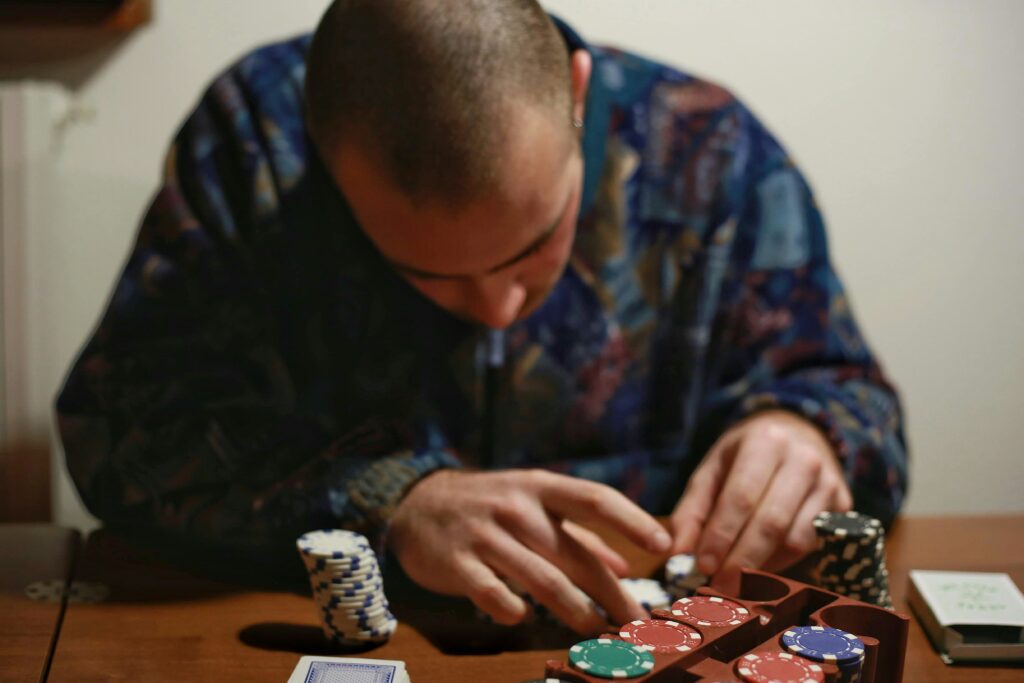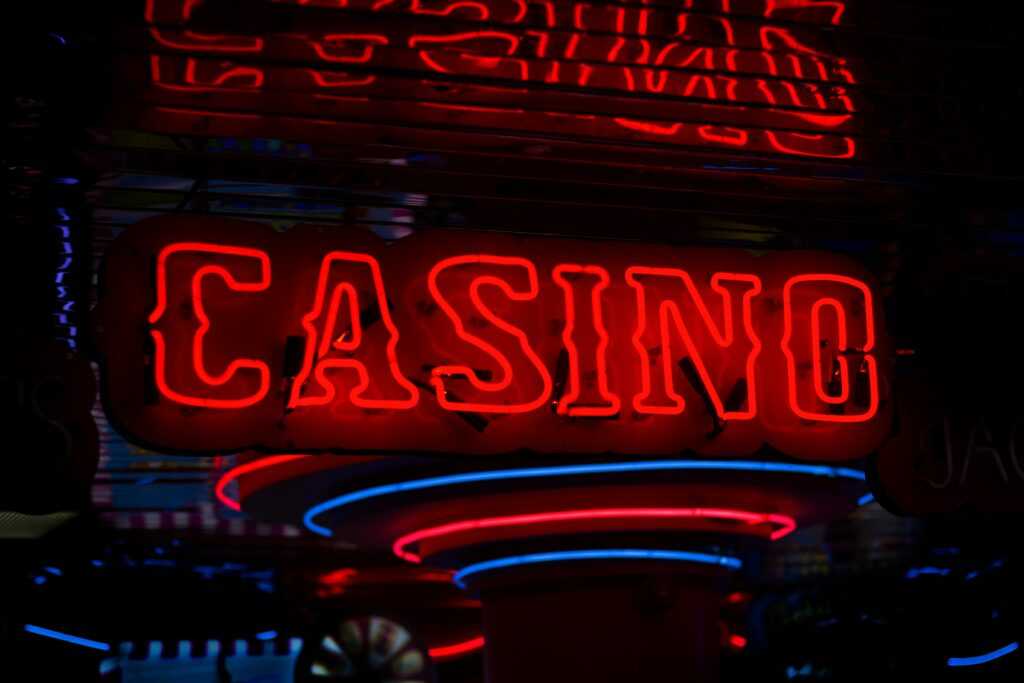Early Days of Gambling
In the early days, gambling was a different experience. People gathered in secret establishments, often backrooms of bars, to play poker and dice games. These gatherings thrived on close-knit communities and social bonds.
I remember seeing cash exchanged across worn-out tables and hearing the clatter of dice. The atmosphere was thick with anticipation and the smell of cigars. Small stakes were common but serious money sometimes made its way into the pot, leading to tense showdowns.
Games relied heavily on physical skill and keen observation. Players needed to read opponents and manage their expressions. Cheating was not uncommon, so trust played a crucial role. Cards and dice were the primary tools, with few regulations governing the games.
Local laws varied, affecting where and how people could gamble. In some areas, gambling was outright illegal, so games happened in total secrecy. Elsewhere, small casinos operated under lenient regulations, providing a semi-legal venue for enthusiasts.
Gambling was more of a clandestine pastime in the early days. The focus was on personal interactions and tangible experiences, setting a foundation for the diverse gambling culture seen today.
Evolution of Casinos

Casinos have undergone significant changes, transforming from traditional establishments to modern entertainment hubs.
From Traditional to Modern
Casinos started as small, exclusive clubs where people gathered for social interaction and games of chance. They were often located in secluded areas to maintain privacy. Initially, these establishments were dimly lit, smoke-filled rooms with basic amenities. As time progressed, their appeal grew, leading to the creation of grand casinos in Las Vegas and Monte Carlo. These opulent venues offered a mix of gambling and luxurious experiences, attracting a global clientele. They featured elaborate decor, live entertainment, and gourmet dining, marking a substantial shift from their humble beginnings.
Technological Advancements
- Technology has revolutionized the casino experience.
- The introduction of slot machines in the late 19th century brought automation to gambling.
- By the late 20th century, the advent of computer technology enabled the development of video poker and electronic gaming machines.
- The internet era further transformed casinos, leading to the rise of online gambling platforms.
- These platforms offer a wide range of games, from traditional card games to modern video slots, available 24/7.
- Advancements in mobile technology have enabled players to gamble on the go, making the casino experience more accessible and convenient than ever before.
- Virtual reality and augmented reality are now emerging, promising to deliver even more immersive and interactive gaming experiences in the future.
Online Gambling Era
Online gambling has drastically transformed the gambling landscape. In my interview, I learned about the significant changes that occurred with the advent of online platforms.
Emergence and Growth
The internet started changing gambling in the mid-1990s. The first online casino, InterCasino, launched in 1996. It offered 18 casino games. Online gambling quickly grew in popularity. By 1998, over 700 online casinos existed. They provided various games, such as:
- poker
- blackjack
- slot machines
PayPal and Neteller made online gambling more accessible. These platforms streamlined transactions, increasing user confidence in online casinos.
Advantages and Challenges
Online gambling offers many advantages. It’s convenient, with 24/7 access from anywhere. Players don’t need to travel to a physical location. There’s also more variety. Online platforms offer hundreds of games. You can find niche games that traditional casinos don’t offer. Bonuses and promotions attract new players. They often provide free spins or matching deposits.
However, online gambling has challenges. Addiction rates have increased. Online platforms are easily accessible, making it easier to gamble excessively. Security is another concern. Fraudulent websites exist, aiming to scam unsuspecting players. Regulation varies by country. Some countries have strict laws, while others have none, causing confusion for players. Online gambling also lacks the social aspect. Many players miss the camaraderie of physical casinos.
Incorporating anecdotes from the veteran gambler, these insights into the online gambling era demonstrate both the rapid growth and the complexity that has emerged with technology.
Legal and Social Changes
Over the years, gambling laws and societal views have shifted dramatically. These legal and social changes have shaped the landscape of gambling and influenced how it’s perceived and practiced.
Regulatory Updates
Governments have continually adjusted gambling regulations to address evolving societal norms and technological advancements. In the early 20th century, many countries outright banned gambling, aiming to curb its associated social issues. However, the mid-1900s saw a shift towards regulation and taxation, enabling legalized gambling to contribute to public coffers. This regulation provided a more controlled environment, reducing illegal gambling operations.
In the US, the Indian Gaming Regulatory Act of 1988 marked a significant change, allowing Native American tribes to operate casinos on tribal lands. Later, the Unlawful Internet Gambling Enforcement Act of 2006 targeted online gambling, making it illegal for gambling businesses to knowingly accept payments related to unlawful internet gambling. Countries like the UK also instituted comprehensive measures, such as the Gambling Act 2005, to regulate and oversee all forms of gambling, including online platforms.
Changing Public Perception
Public perception of gambling has evolved alongside regulatory changes. Initially viewed with suspicion and often associated with criminal activity, gambling began to gain social acceptance as governments legalized and regulated it. This shift was partly due to successful integration with entertainment and tourism industries, showcasing gambling as a legitimate leisure activity.
Media portrayal has also played a role. Movies and TV shows glamorizing the casino experience have helped shape a more positive image of gambling. Additionally, societal acceptance has risen with the emergence of professional poker players and eSports betting, transforming gambling from a stigmatized activity into a skill-based competition and mainstream entertainment form.
Overall, while some still view gambling with caution due to addiction risks, it has largely become a socially accepted form of entertainment, aided by stringent regulations and the normalization of gambling in popular culture.
This section delves into the regulatory changes and shifting public perceptions, showing how legal frameworks and societal views have transformed gambling over the years.
The Veteran Gambler’s Perspective
In my interview with the veteran gambler, he shared unique insights into how gambling has evolved over the decades, offering both historical context and personal reflections.
Personal Experiences
The veteran gambler recounted his earliest memories of gambling back in the 1960s. He started with simple card games at family gatherings. As he grew older, he explored backroom poker games and local betting shops.
These places had an underground feel, as gambling was less socially accepted at the time. He eventually moved to more sophisticated venues like the grand casinos of Las Vegas. He described the thrill of stepping into a casino for the first time, surrounded by the sounds of slot machines and the chatter of card tables. His journey reflects the broader transition of gambling from informal gatherings to luxurious, high-stakes environments.
Insights and Reflections
Reflecting on the evolution of gambling, the veteran gambler noted several significant changes. One major shift has been the role of technology. He mentioned how the introduction of electronic slot machines and video poker transformed the casino experience.
Another key point was the advent of online gambling in the mid-1990s. He discussed how this opened up new opportunities but also introduced challenges, such as issues related to addiction and security.
Legal regulations have also had a profound impact. The veteran gambler cited laws like the Indian Gaming Regulatory Act of 1988, which allowed for the expansion of casinos on Native American lands, and the Unlawful Internet Gambling Enforcement Act of 2006, which aimed to curb illegal online gambling activities. His insights illustrate a gambling industry that’s always in flux, adapting to technological advancements and shifting societal norms.



 Elizabeth Dinglerrin
Founder & CEO
Elizabeth Dinglerrin is the visionary founder behind Bet Wise Daily. With a wealth of experience in the gambling industry and a deep passion for data-driven insights, Elizabeth established Bet Wise Daily to provide a comprehensive source of news, analysis, and exclusive content for casino enthusiasts. Her leadership and strategic acumen have shaped the platform into a leading authority in gambling media. When she's not immersed in the latest trends or pioneering new features, Elizabeth enjoys sharing her expertise at industry conferences and mentoring aspiring professionals in the field.
Elizabeth Dinglerrin
Founder & CEO
Elizabeth Dinglerrin is the visionary founder behind Bet Wise Daily. With a wealth of experience in the gambling industry and a deep passion for data-driven insights, Elizabeth established Bet Wise Daily to provide a comprehensive source of news, analysis, and exclusive content for casino enthusiasts. Her leadership and strategic acumen have shaped the platform into a leading authority in gambling media. When she's not immersed in the latest trends or pioneering new features, Elizabeth enjoys sharing her expertise at industry conferences and mentoring aspiring professionals in the field.
